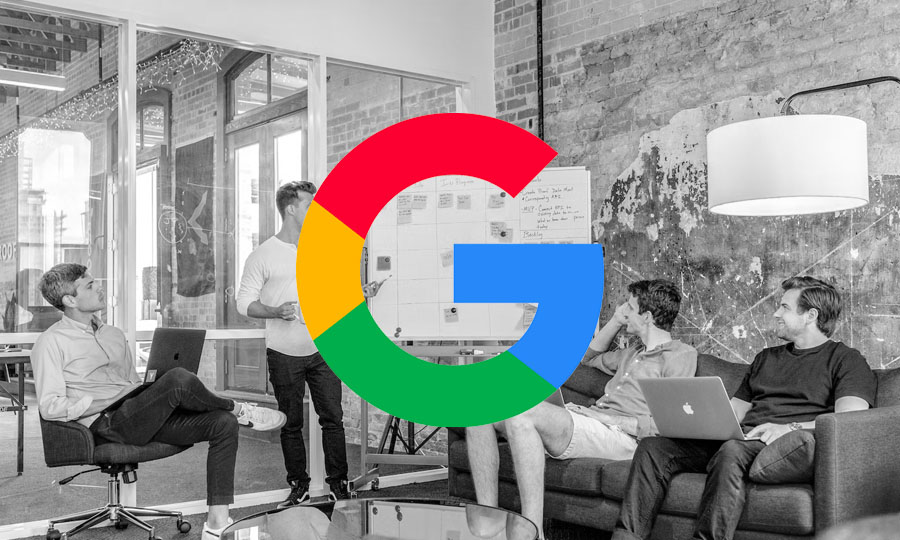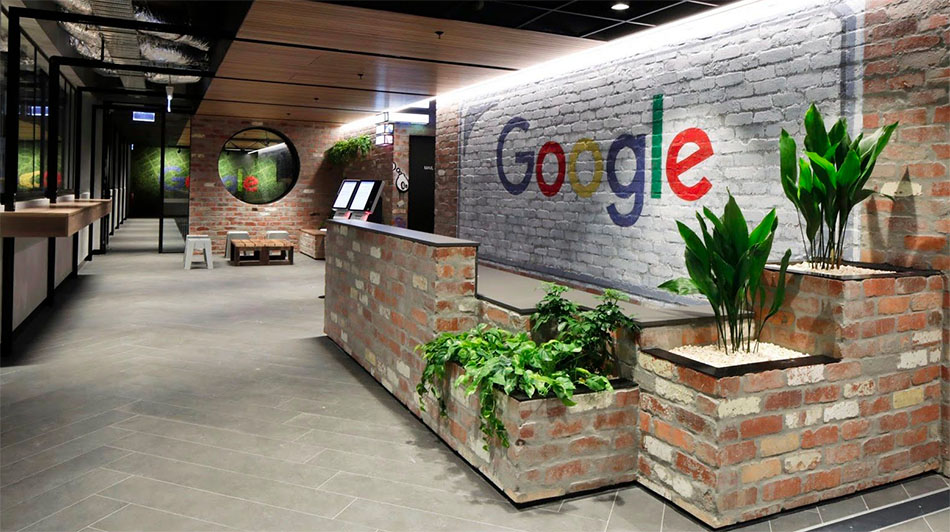Google Interview Process: Expert Guide, Questions & Tips
So you've got an interview at Google - congrats! That's no mean feat... Now you just have the small matter of acing Google's gruelling interview process. Here are our top tips:

A survey found that Google is the number-one company that most tech workers in the US want to work for. It’s easy to see why, we ranked them as one of the best FAANG companies to work for.
Unfortunately, it’s not easy to receive a job offer from Google. You’re far more likely to be accepted into Harvard than make it through the company’s notoriously difficult interview process, which has an acceptance rate of only 0.2%.
Thinking that you have what it takes? Apply!
Once you’ve received an invitation from them for an interview, you can use this guide from 4 Day Week on the Google interview process, to prepare for what’s to come!
Google Hiring Process Overview
From the very first step of applying to the moment you receive a job offer, you’ll have to go through five stages.
- Stage 1: Resume screenings
- Stage 2: Phone screenings
- Stage 3: On-site interviews
- Stage 4: Hiring committee reviews
- Stage 5: Executive reviews
Every stage in the process is important, but the most critical are Stage 2 (phone screenings) and Stage 3 (on-site interviews). These are the stages where they judge your relevant working skills and assess whether you’re compatible with Google’s work culture.
You may be asked to participate in up to 2 rounds of phone screenings. If all goes well, you’ll move on to on-site interviews at a Google office. This portion can stretch out for longer and consist of 4-5 rounds. Each interview lasts about 45 minutes on average, and they have a pass rate ranging from 15% to 20%.
Next, your performance in the tests is reviewed by a hiring committee. If all committee members are impressed by how you handled yourself, they’ll submit a hiring motion to Google’s executives.
Every job offer has to be reviewed by Google executives before sending it to candidates. This is the very last phase, and once the offer has received their stamp of approval, you’ve become a Googler!
Here’s What Interviewees Say
Google's interview process is infamously long and difficult. This is backed up by ex-candidates, who complain that it can be both convoluted and frustrating at times.
Because so many candidates are applying (they receive 3 million applications every year), Google's recruiters can make many mistakes during the hiring process.
One ex-candidate said they were turned down after an interview, but months later, they were contacted and told there was a mistake. They’d actually made it through!
Another ex-candidate recounted their experience and found out:
"You can pass every interview with A grades and still not get a job because a senior Googler decides that you're the wrong person to be hired."
Google Interview Process Timeline
How Long Is the Process?
The entire Google recruitment process will on average last about 2 months from start to finish and can consist of 4 to 9 interviews. This is a marked improvement over Google’s past interview process, which took 6-9 months and consisted of up to 25 interviews.
Step 1: Recruiter Prescreen
This step consists of two stages: resume screening and phone screening.
In the resume screening, the recruiter will look through all of the documents you submitted (CV, resume, cover letter) to see whether you’re a good fit for the position.
Waiting for Google to screen your resume can take a long time, ranging from 2 weeks, to as long as 3 months.
During a phone screening (which can last around 30-60 minutes), a Googler will quiz you on relevant knowledge over the phone to assess your skill. If you pass, you’ll move onto the on-site interview.
Step 2: On-site Interview
For the Google onsite interview, you’ll come to one of the company’s campuses, sit in on interviews, and perform technical tests and exercises under the supervision of Google employees. Typically, the interview will consist of 4-5 testing rounds and can stretch out for days.
Don’t worry about transportation or accommodation. Google will provide everything for free.
Step 3: Hiring Committee Review
The Google hiring committee is a panel of Googlers who’ll decide whether they should take you in or not. They’ll make their decision based on your performance in all previous tests.
The committee is made up of many senior Googlers who’re encouraged to debate and form their own opinions about a candidate. Research has shown that when a group is organized this way, they’ll make less biased decisions. As a result, the candidates the committee selects (at least in theory), will be of a higher quality.
It usually takes the committee anywhere from one to two weeks to decide.
Would you like a 4 day work week?
Step 4: Decision Making
Google’s executives manually review every job offer before they’re extended to candidates. They can decide whether to pass or fail you, depending on your performance as well as various other factors:
- Would you fit in with the team/department they’re assigned to?
- Do you have a good personality and attitude?
- Can you fit into the company’s culture?
Google Interview Stages
Stage 1: Resume Screening
When you send in your resume, ensure that it stands out from the rest by aligning its content with the description of the job you’re applying to.
Google seeks resumes that have quantifiable information and exact data. Write down specific and measurable achievements and experiences.
For example, if you say you have leadership experience, mention the size of the team, the importance of the project, and the way you measure the project’s success.
And last but not least, keep everything short. Google’s recruiters read through a lot of applications every day. They’ll refuse to read your resume if it’s too long.
Stage 2: Phone Screening
A Googler will contact you via phone (or a teleconferencing app like Google Meet). They’ll explain the interviewing process and what the job entails, and then they’ll test you on relevant knowledge for the position you’re applying to.
For example, if you’re applying as a software developer, the phone screening will consist of tests on algorithms and data. If you’re extraordinarily talented, you’ll only have to do one round. Most applications have to go through two.

Stage 3: On-site Interview
You’ll be invited to on-site interviews if you pass the phone screening. Google will fly you out to the closest HQ. You’ll meet and socialize with team members and managers, who will supervise as you perform hands-on tests and exercises.
The on-site interview should conclude within 4 rounds, and there are two major assessments, role-specific fit and firm-specific fit.
In the role-specific assessment, they’ll assess your skills and knowledge to see whether you’re a good fit for the job. Within this assessment are two types of interviews. For instance, these can be:
- On-site coding interview: whiteboarding algorithms and data-related problems. The difficulty of these questions will usually be greater than those in the phone screening. Less experienced candidates will get more coding interviews.
- On-site system design interview: in this interview, you must answer Google system design interview questions and think up high-level design architectures for real products. More experienced candidates will get more of these interviews.
For the firm-specific fit test, they’ll perform teamwork, process, and culture-related interviews. The objective is to see whether you’ll fit in with everyone at Google.
Stage 4: The Hiring Committee
In this step, a panel of Google employees will come together to review your test data.
Each member will vote whether to extend a job offer out to you or not, and they’ll come together to discuss their decisions in a hiring committee meeting. If the majority (or all) members are in favor of hiring, a job offer is sent to Google’s executives for final approval.
Stage 5: Executive Decision and Package Offer
You’ve more or less secured a job offer at this point, but there’s still one more thing to do!
A Google executive will look at the job offer a final time before approving it. Once approved, the job offer will typically be sent to a Compensation Committee to decide your compensation packages.
The final draft of the job offer is relayed to your recruiter, who will then contact you, break the news, and explain the details of your new employment. If you want to negotiate pay, now’s the time to do it!
How to Nail the Google Interview Process
Use STAR Process to Adapt Your Resume and Cover Letter
According to Zippia, 63% of recruiters want resumes that are tailored to the job description. You can do that by using the STAR method (Situation, Task, Action, Result).
Other than tailoring your resume and cover letter to the job, a STAR-compliant resume or cover letter can showcase relevant skills, qualifications, and past achievements within a few short bullet points. This makes your resume an easier and faster read, which, for recruiters, is most ideal.
If you’re aiming for a hybrid role, make sure to tailor your resume for remote work too!
Build Your Network to Get a Foot in the Door
80% of jobs are filled via networking. You'll have a higher chance of being hired—at Google and anywhere else—if you have a vast network to circulate your resume.
Networking is establishing contacts and relationships and sharing information first and foremost. And you can do so via trade expos, business-oriented social media networks like LinkedIn, and Google's job fairs!
Practice Answering Technical and Behavioral Questions
Technical Questions
The worst thing you can do when interviewing at Google is to come in unprepared. If you’re applying for a technical role, review relevant knowledge in data structure, algorithms, system architecture, and so on.
Behavioral Questions
You can apply the STAR method again for these questions by answering in a clear format (sequentially Situation, Task, Action, Result). It’ll make your answer easier to follow and more interesting for the examiner. Let’s look at some examples:
Q: Tell me about a time you made a mistake and the steps you took to resolve it?
A: In my last role, I was working as one of the lead developers for an app. One day, the customers reported experiencing sluggish performance and slow load speed in the app, and reported the issue to higher management (Situation). Our team is responsible for rolling out a patch as quickly as we can (Task). As one of the lead developers, I took responsibility and led the team to come up with a patch within 24 hours (Action). The problem was solved, but it taught me the importance of continually monitoring the status of the product (Result).
Get Your Foot in the Door at Google with 4 Day Week!
It sounds like an impossible challenge, but if you’re talented and persistent, receiving a job offer from Google is entirely in the realm of possibility. Not only is a Google job well-paid, it also comes with many benefits like a hybrid or 4-day week work plan and a great work/life balance.
For remote, 4-day week jobs, be sure to check out the 4 Day Week’s job board. We have positions from Google, alongside some of the other giants of the tech industry. Find your next job today!